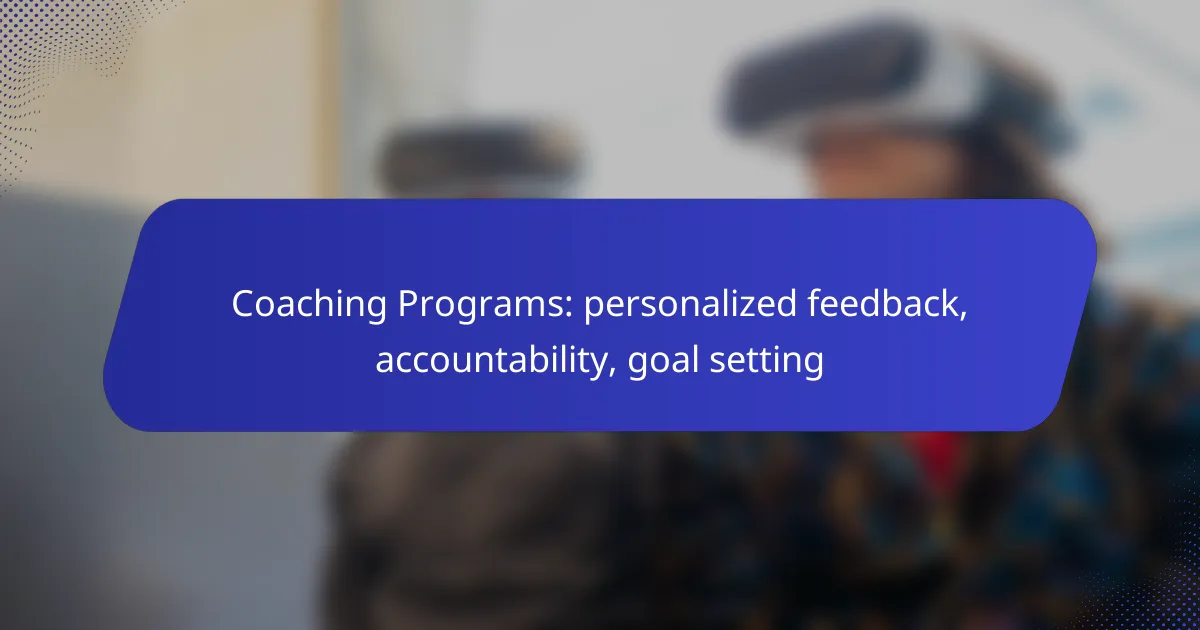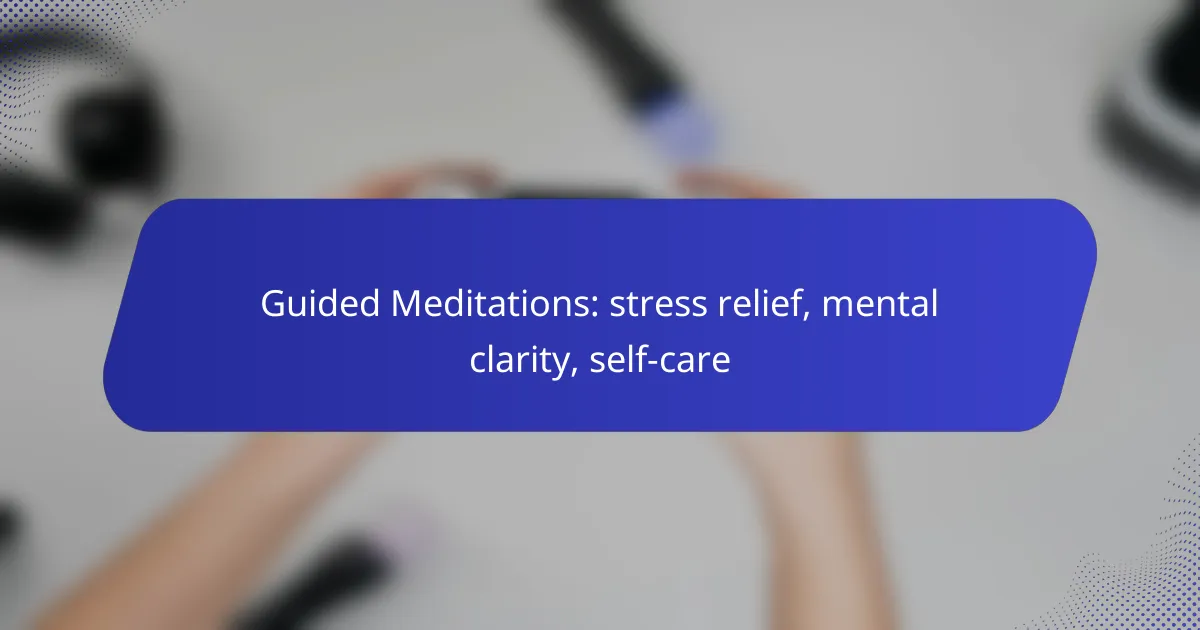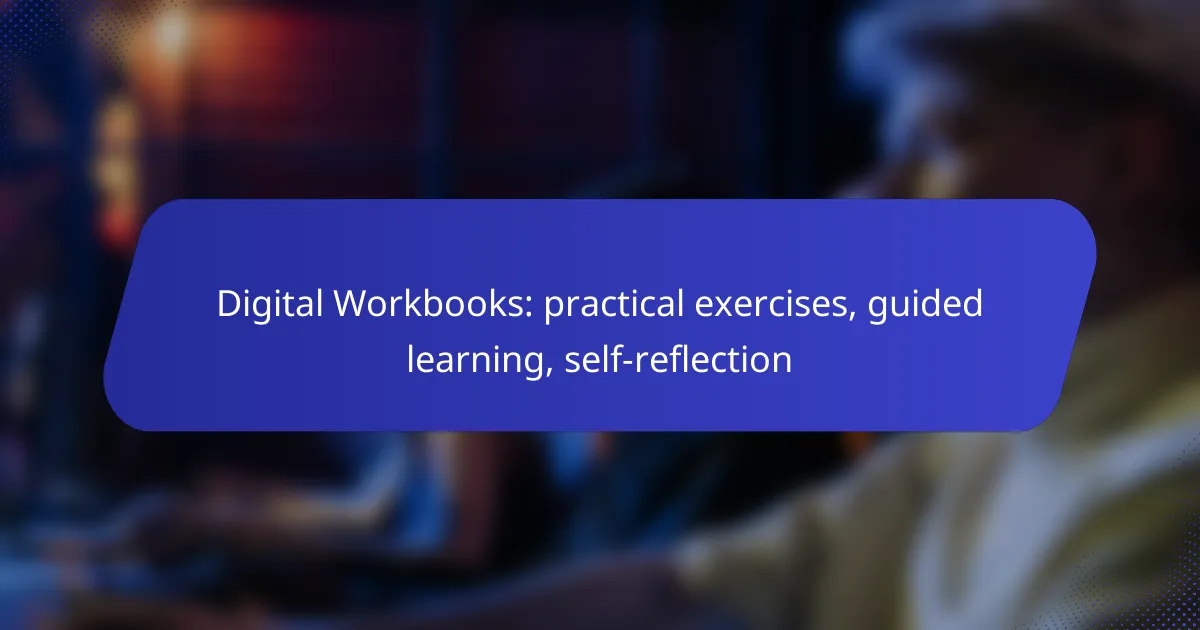Coaching programs offer personalized feedback that is specifically designed to address individual needs and aspirations. By incorporating accountability measures and structured goal-setting frameworks, these programs empower clients to define clear objectives and stay committed to their personal growth journey.
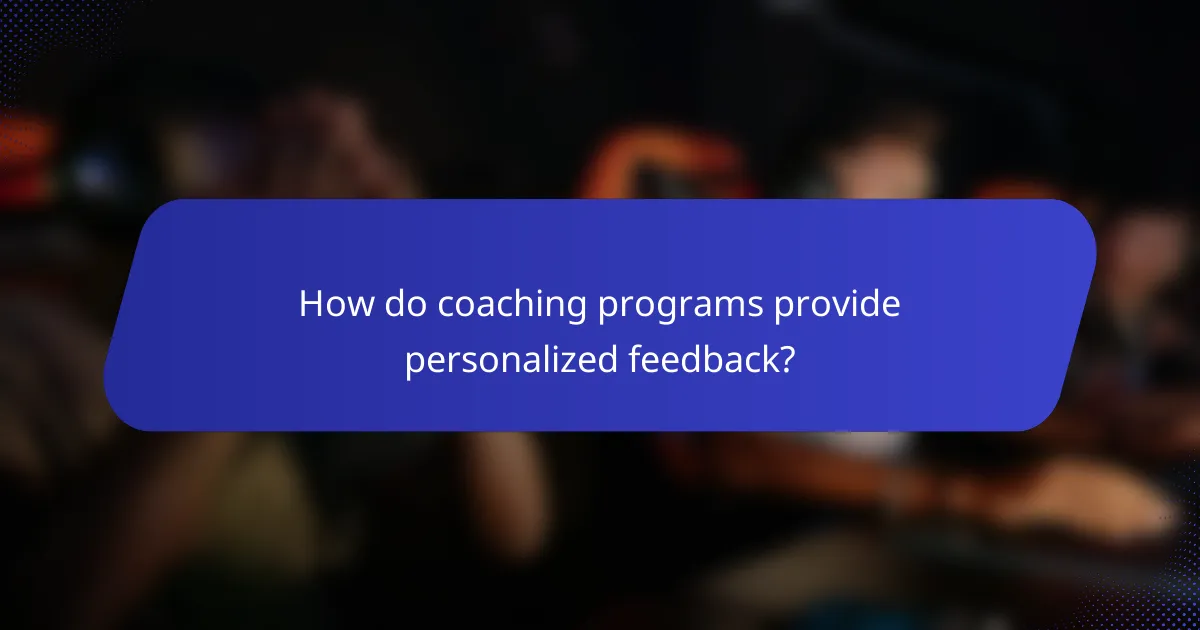
How do coaching programs provide personalized feedback?
Coaching programs deliver personalized feedback through a structured approach that focuses on individual needs and goals. This feedback is tailored to help clients understand their strengths and areas for improvement, ensuring they stay accountable and motivated throughout their journey.
Individual assessments
Individual assessments are foundational to personalized feedback in coaching programs. Coaches often begin with comprehensive evaluations that may include questionnaires, interviews, or skill assessments to gauge a client’s current situation and aspirations.
These assessments help identify specific strengths, weaknesses, and preferences, allowing coaches to create a clear picture of the client’s starting point. For example, a coach might use a 360-degree feedback tool to gather insights from peers and supervisors, enhancing the assessment’s depth.
Tailored action plans
Once assessments are complete, coaches develop tailored action plans that align with the client’s goals. These plans outline specific steps and strategies to achieve desired outcomes, making the feedback actionable and relevant.
A well-structured action plan might include short-term and long-term goals, along with measurable milestones. For instance, a client aiming to improve public speaking skills may have tasks like practicing speeches weekly and seeking opportunities for presentations.
Regular check-ins
Regular check-ins are crucial for maintaining momentum and accountability in coaching programs. These sessions provide opportunities for clients to discuss progress, challenges, and any adjustments needed in their action plans.
Typically scheduled weekly or bi-weekly, check-ins allow coaches to offer ongoing feedback and support. During these sessions, clients can reflect on their experiences, celebrate successes, and recalibrate their strategies as necessary, ensuring they remain on track toward their goals.

What accountability measures are included in coaching programs?
Coaching programs typically incorporate various accountability measures to ensure participants stay committed to their goals. These measures often include progress tracking, structured goal-setting frameworks, and the involvement of accountability partners.
Progress tracking
Progress tracking is a crucial component of accountability in coaching programs. It involves regularly monitoring and documenting achievements against set goals. This can be done through weekly check-ins, progress reports, or digital tools that allow for real-time updates.
Effective progress tracking helps identify areas of improvement and celebrates milestones, which can motivate participants to stay on course. Coaches may use metrics such as completion rates or skill assessments to gauge progress.
Goal-setting frameworks
Goal-setting frameworks provide a structured approach to defining and achieving objectives within coaching programs. Common frameworks include SMART goals (Specific, Measurable, Achievable, Relevant, Time-bound) and OKRs (Objectives and Key Results), which help clarify what participants aim to accomplish.
These frameworks encourage participants to break down larger goals into smaller, manageable tasks, making it easier to track progress and maintain focus. Regularly revisiting and adjusting these goals can enhance accountability and ensure alignment with personal aspirations.
Accountability partners
Accountability partners are individuals who support and motivate each other in achieving their goals. In coaching programs, partners can be fellow participants or coaches who provide encouragement and constructive feedback. This relationship fosters a sense of responsibility and commitment.
Choosing the right accountability partner is essential; they should share similar goals or values and be willing to engage in open communication. Regular check-ins with accountability partners can significantly enhance motivation and help overcome challenges along the way.
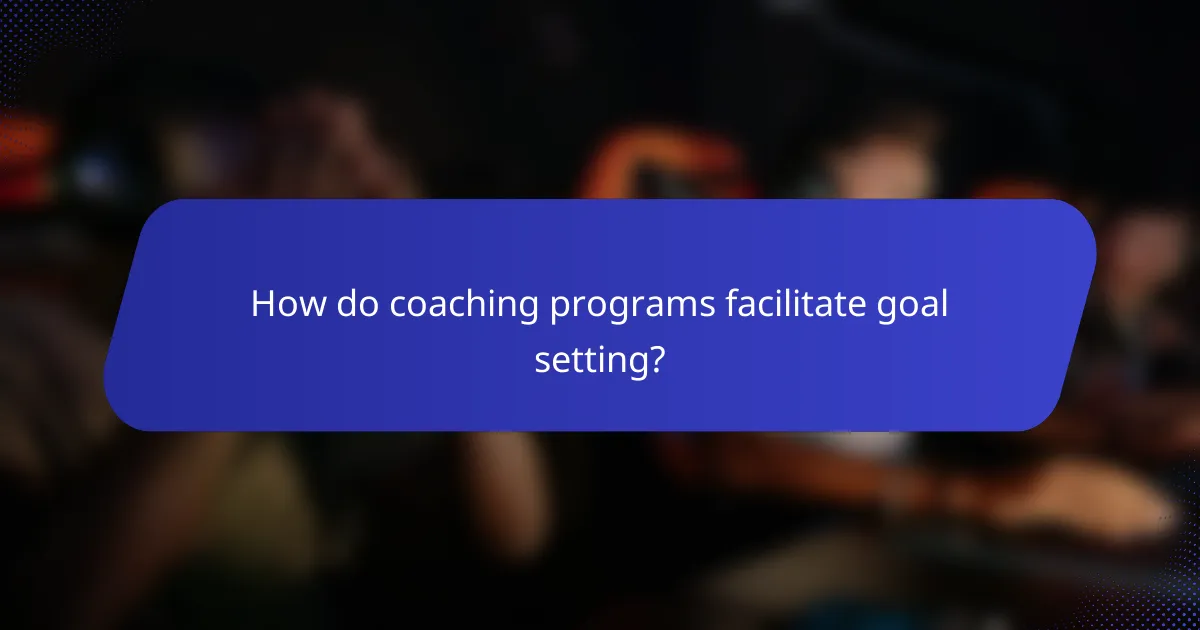
How do coaching programs facilitate goal setting?
Coaching programs enhance goal setting by providing structured frameworks and personalized support. They help individuals define clear objectives, create actionable plans, and maintain accountability throughout the process.
SMART goals methodology
The SMART goals methodology is a widely used framework that ensures goals are Specific, Measurable, Achievable, Relevant, and Time-bound. This approach helps individuals clarify their objectives and set realistic timelines, making it easier to track progress.
For example, instead of saying “I want to get fit,” a SMART goal would be “I will exercise for 30 minutes, five times a week for the next three months.” This specificity allows for better planning and accountability.
Vision board creation
Creating a vision board is a powerful visual tool that helps individuals articulate their goals and aspirations. By compiling images, quotes, and symbols that represent desired outcomes, individuals can keep their objectives top of mind.
A vision board can be physical or digital, and it serves as a daily reminder of what one is working towards. This practice can enhance motivation and focus, making it easier to stay committed to goal achievement.
Milestone tracking
Milestone tracking involves breaking down larger goals into smaller, manageable steps. This method allows individuals to celebrate achievements along the way, maintaining motivation and momentum.
For instance, if the goal is to complete a certification, milestones could include registering for the course, completing specific modules, and passing practice exams. Regularly reviewing these milestones can help identify areas needing adjustment and reinforce accountability.

What are the best coaching programs available in the US?
The best coaching programs in the US offer personalized feedback, accountability, and effective goal setting tailored to individual needs. These programs can vary in their approach, pricing, and specific offerings, making it essential to choose one that aligns with your personal or professional development goals.
BetterUp
BetterUp is a leading coaching platform that connects users with professional coaches for personalized sessions. The program focuses on mental fitness, leadership development, and personal growth, providing tailored feedback based on individual assessments.
Users typically engage in regular coaching sessions, which can be conducted via video calls or chat. The platform also offers resources like articles and exercises to complement the coaching experience, helping users stay accountable to their goals.
CoachAccountable
CoachAccountable is designed for coaches looking to manage their clients effectively while providing structured feedback and accountability. This platform allows coaches to set goals, track progress, and communicate with clients through an integrated system.
Features include customizable coaching plans, progress tracking tools, and automated reminders for clients. This makes it easier for both coaches and clients to stay aligned on objectives and ensure consistent engagement throughout the coaching process.
Life Coach Spotter
Life Coach Spotter is a resource that helps individuals find the right life coach based on their specific needs and goals. The platform provides a directory of certified coaches across various specialties, allowing users to compare options easily.
Users can filter coaches by criteria such as expertise, location, and pricing, which typically ranges from affordable to premium rates. This flexibility helps individuals select a coach who fits their budget and coaching style, enhancing the likelihood of achieving desired outcomes.

What criteria should you consider when choosing a coaching program?
When selecting a coaching program, consider factors such as coaching style, program duration, and cost. These elements will significantly impact your experience and the effectiveness of the program in helping you achieve your goals.
Coaching style
Coaching style refers to the approach and techniques used by the coach. Some coaches may focus on directive methods, providing clear guidance and structured plans, while others may adopt a more facilitative style, encouraging self-discovery and personal insights.
To find the right fit, assess your learning preferences. If you thrive on accountability and structure, a directive coach might suit you better. Conversely, if you prefer exploring your thoughts and ideas, look for a coach who emphasizes a collaborative approach.
Program duration
Program duration can vary widely, typically ranging from a few weeks to several months. Short-term programs may focus on specific goals, while longer programs often provide more comprehensive support and deeper exploration of issues.
Consider how much time you can commit and what you hope to achieve. A program lasting three to six months may be ideal for significant personal development, while a shorter, intensive program could be effective for immediate challenges.
Cost and payment options
Cost is a critical factor when choosing a coaching program, with prices often ranging from a few hundred to several thousand dollars. Be sure to evaluate what is included in the price, such as one-on-one sessions, group workshops, or additional resources.
Look for flexible payment options, such as installment plans or sliding scale fees based on income. This can make high-quality coaching more accessible and allow you to invest in your development without financial strain.

How do digital coaching platforms enhance the coaching experience?
Digital coaching platforms significantly enhance the coaching experience by providing personalized feedback, accountability, and structured goal setting. These tools streamline communication between coaches and clients, making it easier to track progress and adjust strategies as needed.
Access to resources
Digital coaching platforms offer a wealth of resources that clients can access anytime. This includes video tutorials, articles, and interactive tools that support learning and development. For instance, a platform might provide templates for goal setting or exercises tailored to individual needs.
Clients can also benefit from curated content that aligns with their specific coaching objectives. This ensures that the resources are relevant and can be immediately applied to their personal or professional growth.
Community support
Community support is a crucial element of digital coaching platforms, fostering a sense of belonging among users. Many platforms include forums or chat groups where clients can share experiences, challenges, and successes. This peer interaction can motivate individuals to stay committed to their goals.
Additionally, community features often allow for networking opportunities, where users can connect with others in similar fields or situations. Engaging with a supportive community can enhance accountability and provide diverse perspectives on overcoming obstacles.
